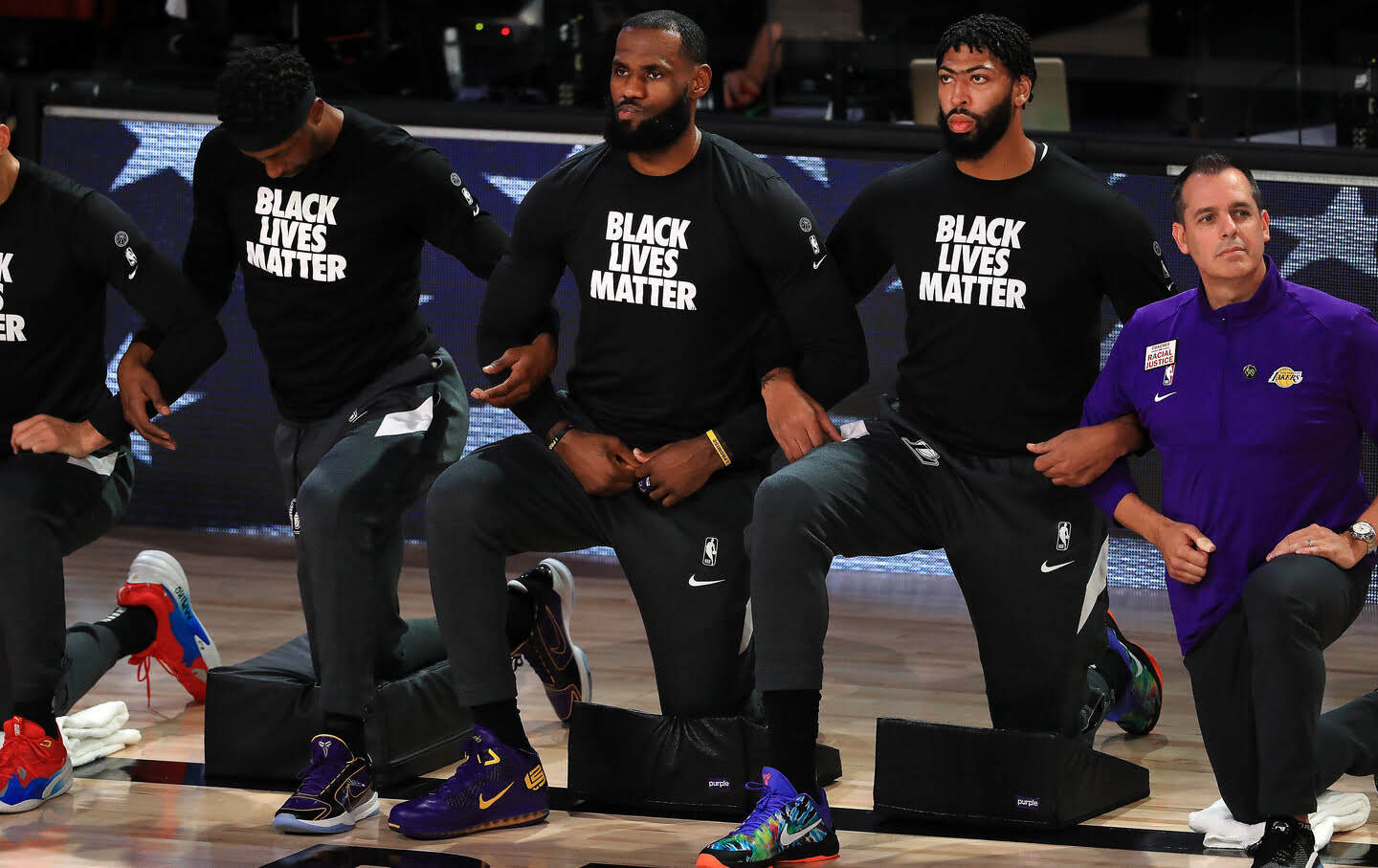What Happened to Black Activism in Professional Sports?
On this episode of the Edge of Sports podcast, Howard Bryant and Brenda Elsey join the show to discuss social movements in sports.

Here's where to find podcasts from The Nation. Political talk without the boring parts, featuring the writers, activists and artists who shape the news, from a progressive perspective.
The growth of the Black Lives Matter movement through the 2010s catalyzed a resurgence of Black activism in professional sports that had its climax in 2020 with the athletes' boycott following the shooting of Jacob Blake. Just a few years later, this energy seems to have dissipated. What happened, and how can we comprehend these recent events in the longer arc of Black activism in sports? Sports journalist and author Howard Bryant joins the Edge of Sports for a look at the build-up to 2020 and how many athletes' politics were co-opted in the aftermath.
Later in the show, we have Choice Words about the social cost of smartphone sports gambling becoming the economic lifeblood of sports.
And in our segment, Ask a Sports Scholar, we speak with Hofstra University Professor Brenda Elsey, whose research focuses on the development of women’s soccer internationally, as the FIFA Women’s World Cup tournament approaches.
Howard Bryant is the author of ten books, including the forthcoming Kings and Pawns: Jackie Robinson and Paul Robeson in America. He has been a senior writer for ESPN since 2007 and has served as the sports correspondent for NPR’s Weekend Edition Saturday since 2006.
Dr. Brenda Elsey is a professor of history at Hofstra University, where she focuses on the history of popular culture and politics in twentieth century Latin America, in addition to gender, social theory, sports, and Pan-Americanism. She is the author of Futbolera: Women and Sport in Latin America.
Advertising Inquiries: https://redcircle.com/brands
Privacy & Opt-Out: https://redcircle.com/privacy

The growth of the Black Lives Matter movement through the 2010s catalyzed a resurgence of Black activism in professional sports that had its climax in 2020 with the athletes’ boycott following the shooting of Jacob Blake. Just a few years later, this energy seems to have dissipated. What happened, and how can we comprehend these recent events in the longer arc of Black activism in sports? Sports journalist and author Howard Bryant joins Edge of Sports for a look at the build-up to 2020 and how many athletes’ politics were co-opted in the aftermath.
Later in the show, we have Choice Words about the social cost of smartphone sports gambling becoming the economic lifeblood of sports.
And in our segment Ask a Sports Scholar, we speak with Hofstra University professor Brenda Elsey, whose research focuses on the development of women’s soccer internationally, as the FIFA Women’s World Cup tournament approaches.
Howard Bryant is the author of 10 books, including the forthcoming Kings and Pawns: Jackie Robinson and Paul Robeson in America. He has been a senior writer for ESPN since 2007 and has served as the sports correspondent for NPR’s Weekend Edition Saturday since 2006.
Dr. Brenda Elsey is a professor of history at Hofstra University, where she focuses on the history of popular culture and politics in 20th-century Latin America, in addition to gender, social theory, sports, and Pan-Americanism. She is the author of Futbolera: Women and Sport in Latin America.

Here's where to find podcasts from The Nation. Political talk without the boring parts, featuring the writers, activists and artists who shape the news, from a progressive perspective.
In Part 6 of our series, Basketball Butterfly Effect, Arya Shirazi joins the show again to discuss the 2009 NBA draft and the Knicks coming close to getting Davidson sharpshooter Steph Curry, the most revolutionary player of his generation. You don’t want to miss this episode!
Advertising Inquiries: https://redcircle.com/brands
Privacy & Opt-Out: https://redcircle.com/privacy
